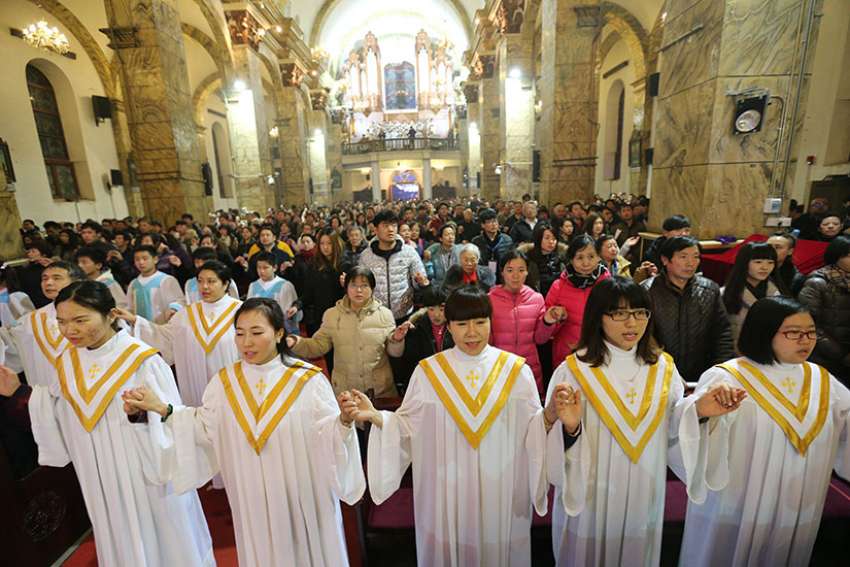Auxiliary Bishop Vaclav Maly of Prague, chairman of the Czech church's Justice and Peace Commission, said in an email to Catholic News Service April 13 that the "usual popular objection" cannot be applied to the asylum-seekers. "There are no terrorists among them and no doubts about their work ethic," he said.
"An act of goodwill would enable Czech officials to show we decide our own affairs and won't be pushed into a corner by protests from China. It's shameful to see economic interests prevailing over humanitarian concerns," he wrote.
Bishop Maly said he was confident the Chinese Christians were "simply seeking refuge from the threat of persecution," and believed their acceptance would "improve the reputation of the Czech Republic" after international criticism of its attitude toward refugees from Syria and Iraq.
"Our country is a member of the European Union, whose treaties and documents talk about human rights, not just trade ties," said Bishop Maly, who was jailed and tortured as a dissident under communist rule in former Czechoslovakia.
"A principled stance can ultimately help resolve many problems. It's worrying the EU seems to be abandoning this, while our own government's policy also moves in the opposite direction," he added.
At least 60 Catholics and Protestants from China requested asylum from February to May 2016. They are being held in Czech reception centers at Havirov and Kostelec nad Orlici.
The CTK state news agency said final government asylum rulings were expected by June, but cautioned that a positive decision would "anger China's communist rulers" by suggesting "the world's most populous country violates human rights."
The agency said Chinese investors had bought Prague's SK Slavia soccer club following a March 2016 visit by President Xi Jinping. Investments also have been made in Skoda, an automobile production company, and the Lobkowicz brewery group.
A lawyer for the Christians, Maria Ludvova Ostrava, told the agency the refugees were "extremely cautious" about publicity, fearing the "persecution of relatives" in China. She said the Czech Interior Ministry had "taken advantage" of deadline extensions for processing the asylum claims.
Under Czech law, the Interior Ministry must rule on asylum claims within 90 days, but can extend this by six-month intervals.
The treatment of refugees and asylum-seekers has been a sensitive issue in the Czech Republic and other East European countries, where Catholic church leaders have faced criticism for not speaking up for fugitives from war and violence in the Middle East.
Frantisek Jemelka, the Czech bishops' conference spokesman, told CNS April 13 that Bishop Maly's comments were "his own initiative" and did not involve other church leaders.


